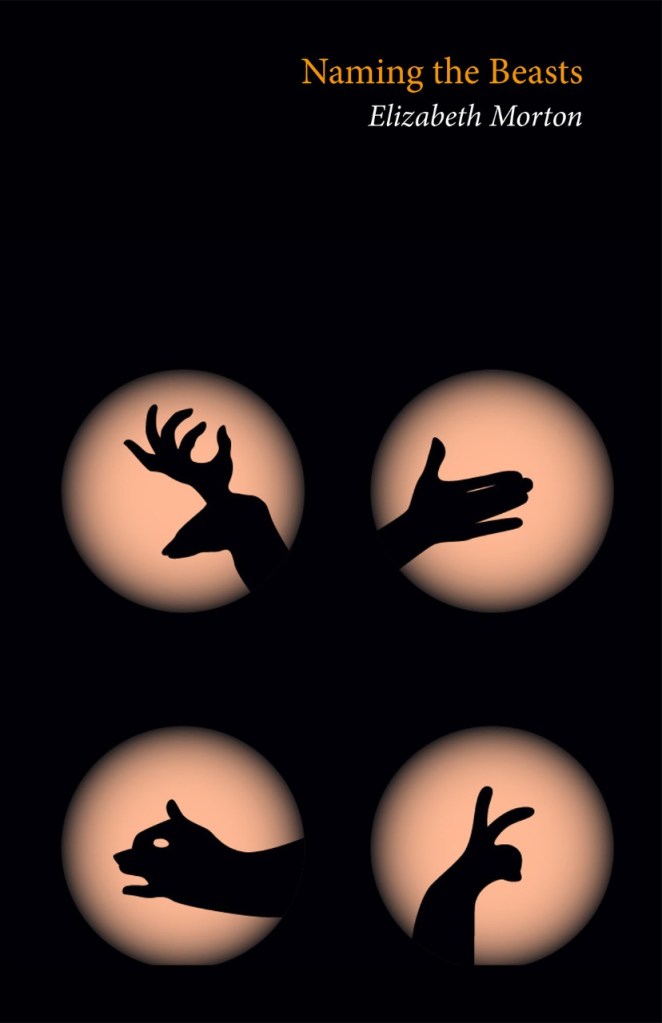Naming the Beast, Elizabeth Morton, Otago University Press, 2022
You don’t want book reviews to diminish your reading experience, to lead you up the garden path of expectation, to lay false trails and unreliable hopes. Imagine the review as a tasting room where you let a morsel of the book swirl on your tongue, releasing flavour, leaving a vital aftertaste. You don’t want book jargon, you just want an aromatic taste (precursor) of the writing, the ideas, the feelings, the connections.
Elizabeth Morton’s Naming the Beast is poetry gold. It is the kind of book you savour slowly, absorbing brocade textures, the sumptuous threads, the surprising patterns, satisfying layers. This is poetry that is sonorous, sensual, startling. It got me thinking about how enmeshed I become in certain poetry collections. How I am laid bare as a reader. How I am spiked and soothed. I get caught in a poem, no question.
Elizabeth writes about being in someone else’s poem:
In somebody else’s poem it’s goddamned desolate. I’m in a house
with no windows; just venetian blinds on blank walls. The rotary phone
bleats hircine, and I hold a real gun to my head. In a poem, the gun goes off.
I wake in another poem, planting succulents because love goes as far
as my toes, and no further.
from ‘We write what we know when we run out of things we don’t’
I could simply pitch this as a collection of beasts and wild(er)ness, because beasts and wildness are an integral part, but it is also a collection of time, mothers, luck, castles, fire, relatives. The subject matter roves and ranges, at times resembling stream of consciousness connections, lily pad leaps, edgeways writing. The music is symphonic. The lexicon is extraordinary; words feed subterranean narratives and dreamscapes, pungent fields of details. There is plainness and there is opulence. There is the off-real and there is the hyperreal.
Celebrate the richness of poetry, the allure of detail thickets, but there is too the invitation of the unsaid, the vibrating space, the reading alcoves.
I admire the collection’s invisible stitching, the behind-the-scenes craft of the poet that produces such poetic fluency. Yet at other times, the making of poetry is poignantly visible. Poetry comes protagonist, a character moving in and out of shadow and light.
Ah, I have used book jargon, kindled your expectations crazily, so I return to my idea of a tasting room – I will hold out a tasting platter for you, and let some of Elizabeth’s lines spark your reading tastebuds.
First, bark the moon. Make ceremony from a stammer,
from a steaming crockpot of two-minute noodles,
from the way the taxi driver sucks his bottom teeth as he drives you north.
from ‘Instructions on how to lose a mind’
My mother is the night owl. My father is the tussock,
I own memories, alone. My celestial object is done for.
The rust core of a lamp that was already out – a red star coughing
though light-years of average days, days spent picking lemons
and walking average suburbs, nodding at ordinary dogs.
from ‘Stolen pepeha’
We pipette soluble proteins like mothers do. Mothers are no minor characters,
who arrange herbs like rubrics, under the soft light of a kettle stove.
Home is a fume-cupboard where legend is filtered like breath.
Our mothers huddle around pantries of cod liver oils, vitamins, and bleach.
Their hands haul the sun over the eastern hillocks, like an axiom.
from ‘Immunohistochemistry’
I want to say I know this place with my eyes closed.
I can run, butt naked, through cabbage rows and dairy cows,
and the Waikato will annunciate my name with a branding iron
and an ear tag that speaks to a bloodline sniffed out by regret.
I am writing in my first language. My second is shame.
When I dream I dream words I cannot spell.
from ‘God of nations’
If I were a robot, I would be in a better poem.
If I were a person, I’d want the telephone wires to hum like stars,
and the stars to be unavoidable.
form ‘Hard sell’
Get a copy of this book, open it, pick a poem, take a road trip within its lines, inhabit as a small retreat, sojourn in a series of alcoves. This collection is gold.
Elizabeth Morton grew up in suburban Auckland. Her poetry and prose have been published in New Zealand, the UK, the USA, Canada, Ireland, Australia and online. She holds an MLitt in Creative Writing from the University of Glasgow. Morton has accrued many literary acknowledgements for her work, and her previous collection of poetry, This is Your Real Name (OUP, 2020), was longlisted for the Mary and Peter Biggs Award for Poetry in the 2021 Ockham New Zealand Book Awards. The manuscript of Naming the Beasts was shortlisted for the 2021 Kathleen Grattan Poetry Award.
Otago University Press author page


Ill be reading the book 😊
LikeLike